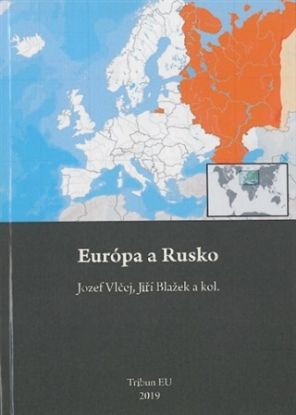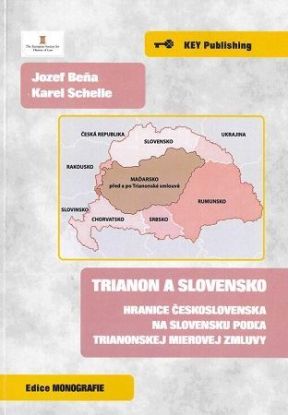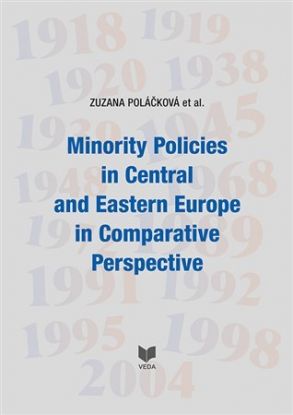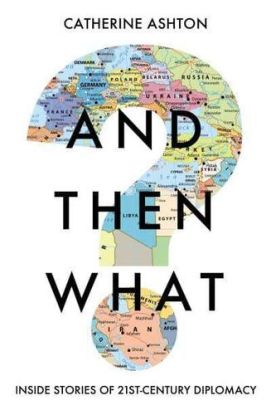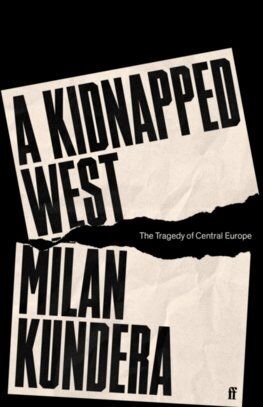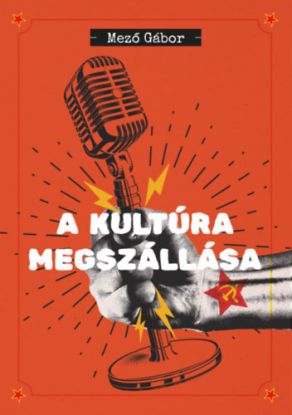- Väzba: mäkká, brožovaná
- EAN: 9788096736607
- Jazyk: anglický
- Dátum vydania: 1. januára 1995
- Vydavateľstvo : Academic Electronic Press
Slovakia - A Political and Constitutional History (with documents)
Mikuš Jozef Augustín
With the Poles and the Czechs the Slovaks belong to the group of the Western Slavs. They were the first among them to become Christianized. Already in 828 the first Christian church was built in Nitra, while 14 Czech tribal chiefs were baptized in 845 in Regensburg. Poland later accepted Christianity in 966, and St. Vladimir became a Christian in Kievan Russia in 989.
Besides their centuries old existence, the Slovaks distinguish themselves from their neighbors by two socio-cultural criteria, namely language and character. Both of them have been crystallized from a process of multinational interaction which has been characteristic of Central Europe since its beginnings.
In that geographical area, Slovakia forms an ellipse, enclosed between the Carpathian Mountains in the North and the Danube and Tisza rivers in the South. In the course of history, this territory has been part of various consecutive state formations. Yet, Slovakia, in terms of culture and geography, has endured all those changes.
Since the French Revolution, the Old Continent has been a battlefield of two different concepts: "the Europe of empires and the Europe of fatherlands" as termed by Charles de Gaulle, or in other words, the world of old, territorially defined statisms and that of ethnically structured units; a confrontation of the past with the aspirations of small nations for self-government first and independence thereafter. During that time the Slovak nation maintained and defended its unity sometimes by force of arms and very often with legal pleadings. This struggle continues, in spite of the apparent eclipse of the ethnic principle, even now under communist internationalism. And sooner or later it will more seriously affect the Soviet Union itself.
National individualities, driven by the instinct of self-preservation, motivated by their own objectives and spontaneously engaged in an effort to achieve them, constitute in international relations the authentic criterion of political ontology. Nations like families are ethical beings whose existence should be protected by the law of the world community of nations.
The fundamental unity of Slovakia`s historical destiny, supported by a particular ethnic character and will of its population, affirms the political identity of the Slovaks, and stimulates more than ever before their legitimate aspiration to independence.
In the first part of this book a survey of Slovakia`s political and constitutional history is given. In it there are references to crucial documents constituting the second part. Their mention in the text is made on the respective page with a footnote, indicating their number in the series arranged in chronological order.
Besides their centuries old existence, the Slovaks distinguish themselves from their neighbors by two socio-cultural criteria, namely language and character. Both of them have been crystallized from a process of multinational interaction which has been characteristic of Central Europe since its beginnings.
In that geographical area, Slovakia forms an ellipse, enclosed between the Carpathian Mountains in the North and the Danube and Tisza rivers in the South. In the course of history, this territory has been part of various consecutive state formations. Yet, Slovakia, in terms of culture and geography, has endured all those changes.
Since the French Revolution, the Old Continent has been a battlefield of two different concepts: "the Europe of empires and the Europe of fatherlands" as termed by Charles de Gaulle, or in other words, the world of old, territorially defined statisms and that of ethnically structured units; a confrontation of the past with the aspirations of small nations for self-government first and independence thereafter. During that time the Slovak nation maintained and defended its unity sometimes by force of arms and very often with legal pleadings. This struggle continues, in spite of the apparent eclipse of the ethnic principle, even now under communist internationalism. And sooner or later it will more seriously affect the Soviet Union itself.
National individualities, driven by the instinct of self-preservation, motivated by their own objectives and spontaneously engaged in an effort to achieve them, constitute in international relations the authentic criterion of political ontology. Nations like families are ethical beings whose existence should be protected by the law of the world community of nations.
The fundamental unity of Slovakia`s historical destiny, supported by a particular ethnic character and will of its population, affirms the political identity of the Slovaks, and stimulates more than ever before their legitimate aspiration to independence.
In the first part of this book a survey of Slovakia`s political and constitutional history is given. In it there are references to crucial documents constituting the second part. Their mention in the text is made on the respective page with a footnote, indicating their number in the series arranged in chronological order.
- Väzba: mäkká, brožovaná
- EAN: 9788096736607
- Jazyk: anglický
- Dátum vydania: 1. januára 1995
- Vydavateľstvo : Academic Electronic Press
With the Poles and the Czechs the Slovaks belong to the group of the Western Slavs. They were the first among them to become Christianized. Already in 828 the first Christian church was built in Nitra, while 14 Czech tribal chiefs were baptized in 845 in Regensburg. Poland later accepted Christianity in 966, and St. Vladimir became a Christian in Kievan Russia in 989.
Besides their centuries old existence, the Slovaks distinguish themselves from their neighbors by two socio-cultural criteria, namely language and character. Both of them have been crystallized from a process of multinational interaction which has been characteristic of Central Europe since its beginnings.
In that geographical area, Slovakia forms an ellipse, enclosed between the Carpathian Mountains in the North and the Danube and Tisza rivers in the South. In the course of history, this territory has been part of various consecutive state formations. Yet, Slovakia, in terms of culture and geography, has endured all those changes.
Since the French Revolution, the Old Continent has been a battlefield of two different concepts: "the Europe of empires and the Europe of fatherlands" as termed by Charles de Gaulle, or in other words, the world of old, territorially defined statisms and that of ethnically structured units; a confrontation of the past with the aspirations of small nations for self-government first and independence thereafter. During that time the Slovak nation maintained and defended its unity sometimes by force of arms and very often with legal pleadings. This struggle continues, in spite of the apparent eclipse of the ethnic principle, even now under communist internationalism. And sooner or later it will more seriously affect the Soviet Union itself.
National individualities, driven by the instinct of self-preservation, motivated by their own objectives and spontaneously engaged in an effort to achieve them, constitute in international relations the authentic criterion of political ontology. Nations like families are ethical beings whose existence should be protected by the law of the world community of nations.
The fundamental unity of Slovakia`s historical destiny, supported by a particular ethnic character and will of its population, affirms the political identity of the Slovaks, and stimulates more than ever before their legitimate aspiration to independence.
In the first part of this book a survey of Slovakia`s political and constitutional history is given. In it there are references to crucial documents constituting the second part. Their mention in the text is made on the respective page with a footnote, indicating their number in the series arranged in chronological order.

206 079 kníh na sklade ihneď k odoslaniu

Poštovné zadarmo pre nákupy od 20€

Rezervácie v 61 kníhkupectvách



